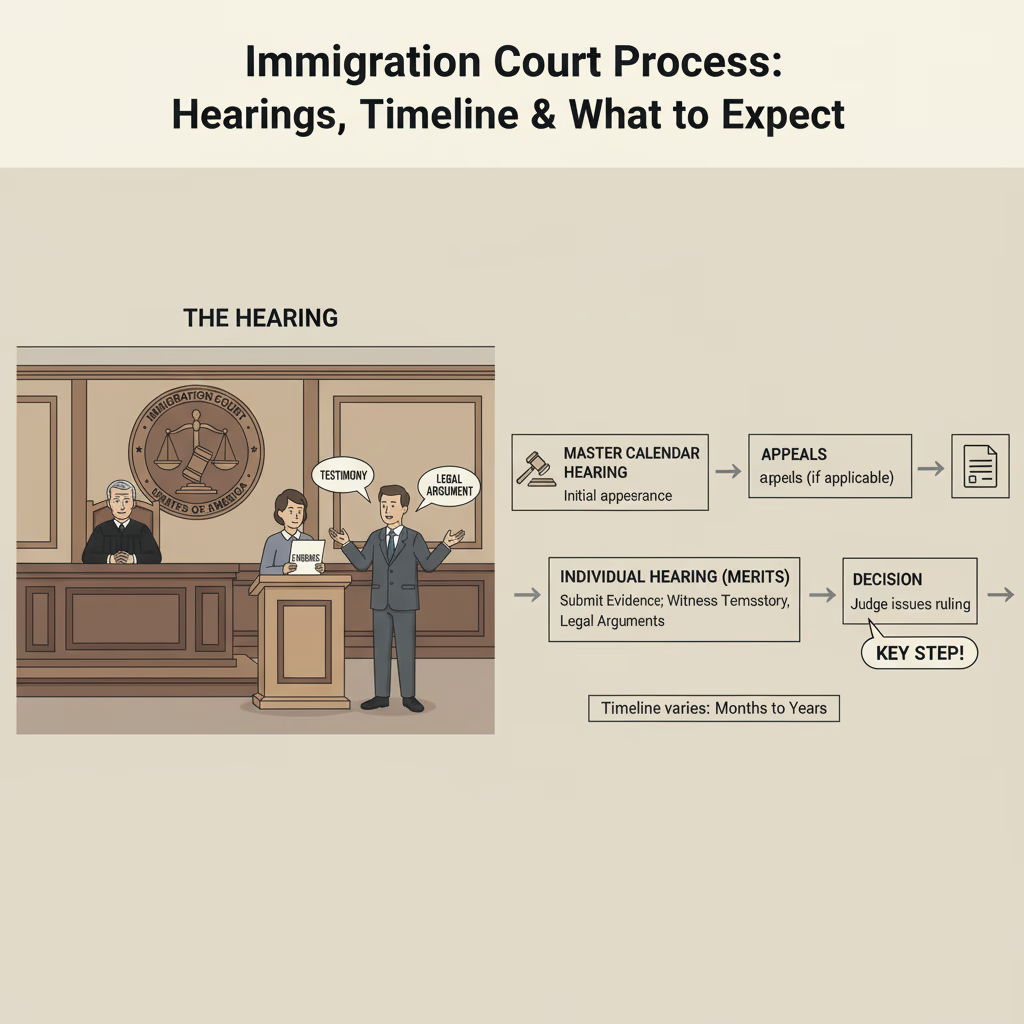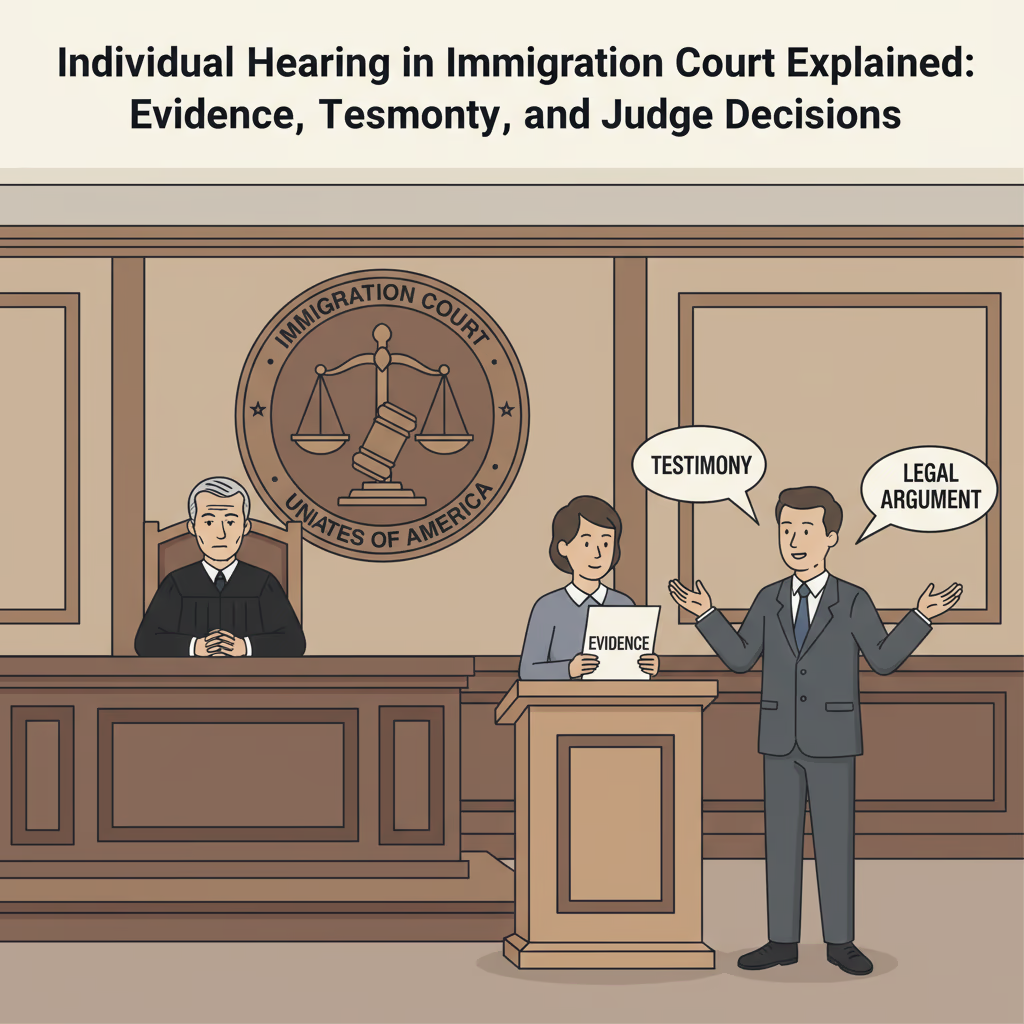The U.S. H2B temporary work visa program plays a significant role in meeting the country’s seasonal labor demands across various industries. However, recent debates surrounding its expansion have sparked curiosity about the motives behind such a move. In this article, we will dive deep into the reasons behind the expansion of the H2B visa program, shedding light on the interests and goals that drive this decision.
From meeting the needs of the tourism industry to addressing critical labor shortages in agriculture and hospitality, the H2B visa program has been a crucial pathway for foreign workers to fill seasonal jobs when there is a shortage of American workers. But why expand the program? Is it purely an economic decision, or are there other factors at play?
By uncovering the motives behind this expansion, we aim to provide a comprehensive understanding of the stakeholders involved and the factors influencing their decisions. Join us as we navigate through the complexities of the H2B visa program, its expansion, and the potential implications it may have on various sectors.
The purpose and history of the H2B visa program
The H2B visa program was established with the purpose of allowing U.S. employers to hire foreign workers on a temporary basis to fulfill seasonal or peak-load needs. The program originated in 1952 as part of the Immigration and Nationality Act and has since undergone various amendments to meet the changing needs of the labor market.
The H2B visa program primarily serves industries such as hospitality, landscaping, forestry, construction, and seafood processing, which experience peak labor demands during certain times of the year. It provides a legal pathway for employers to hire foreign workers when there is a shortage of available American workers.
The program operates on a cap of 66,000 visas per fiscal year, split evenly between the summer and winter seasons. However, demand often exceeds the cap, leading to debates about the need for expansion to accommodate the growing labor shortages in several industries.

Recent expansion of the H2B visa program
In recent years, there has been a push to expand the H2B visa program to meet the increasing labor demands across different sectors. This expansion has been driven by a combination of economic factors, political considerations, and lobbying efforts from various interest groups.
One of the primary reasons behind the expansion is the recognition of the positive impact that H2B visa workers have on the U.S. economy. Many industries heavily dependent on seasonal labor argue that without access to foreign workers, they would struggle to meet their staffing requirements, leading to a decline in productivity and revenue. By expanding the H2B visa program, these industries hope to secure a reliable workforce and maintain their competitiveness in the global market.
Additionally, the expansion of the H2B visa program is seen as a way to address the broader issue of labor shortages in the United States. With unemployment rates at historic lows, finding American workers to fill seasonal positions has become increasingly challenging. Expanding the H2B visa program allows employers to access a larger pool of workers, reducing the strain on the domestic labor market.
The impact of the H2B visa expansion on the U.S. economy
The expansion of the H2B visa program has both positive and negative implications for the U.S. economy. On one hand, it provides a solution to labor shortages and ensures the smooth functioning of industries heavily reliant on seasonal workers. This, in turn, contributes to economic growth, as these industries generate revenue, create jobs, and support local businesses.
For example, in the tourism industry, where the demand for workers peaks during the summer season, H2B visa workers play a crucial role in maintaining the quality of service and meeting customer expectations. By expanding the H2B visa program, hotels, resorts, and amusement parks can continue to provide employment opportunities and drive economic activity in popular vacation destinations.
On the other hand, critics argue that the H2B visa program can have negative effects on the domestic workforce. They claim that by relying on foreign workers, employers may overlook qualified American workers, leading to wage suppression and job displacement. Additionally, some argue that the program creates an incentive for employers to exploit foreign workers due to their temporary status and limited employment options.

Arguments for and against the H2B visa expansion
Proponents of the H2B visa expansion argue that it is essential for the survival and growth of industries facing labor shortages. They emphasize the program’s contribution to job creation, economic development, and the overall competitiveness of American businesses. They also highlight the rigorous regulatory framework that governs the program, ensuring that foreign workers are protected from exploitation and abuse.
Opponents of the H2B visa expansion, however, raise concerns about its potential negative impact on American workers. They argue that expanding the program could lead to job losses and wage depression, particularly in sectors where H2B visa workers are concentrated. They also express concerns about the potential for fraud and abuse within the program, calling for stricter oversight and enforcement measures.
It is important to note that the debate surrounding the expansion of the H2B visa program is complex and multifaceted, with valid arguments on both sides. Finding a balance between meeting labor demands and protecting the interests of the domestic workforce remains a challenge.
Requirements and application process for H2B visas
To qualify for an H2B visa, both employers and foreign workers must meet certain requirements set by the U.S. Department of Labor and U.S. Citizenship and Immigration Services (USCIS). The process involves several steps, including the filing of a temporary labor certification application, job recruitment efforts to attract American workers, and the submission of the H2B visa petition.
Employers must demonstrate that they have made efforts to hire American workers before resorting to hiring foreign workers. They must also provide evidence of the temporary nature of the job, the need for additional workers, and the wages and working conditions offered to H2B visa workers. Foreign workers must meet specific qualifications, including possessing the necessary skills and experience required for the job.
The application process for H2B visas can be complex and time-consuming, often requiring the assistance of immigration attorneys or consultants. The government’s allocation of visas is based on a first-come, first-served basis, adding another layer of competition and urgency for employers seeking to secure H2B visas for their workers.
- To qualify for H-2B nonimmigrant classification, the petitioner must establish that:
- There are not enough U.S. workers who are able, willing, qualified, and available to do the temporary work.
- Employing H-2B workers will not adversely affect the wages and working conditions of similarly employed U.S. workers.
- Its need for the prospective worker’s services or labor is temporary, regardless of whether the underlying job can be described as temporary. The employer’s need is considered temporary if it is a(n):
- One-time occurrence – A petitioner claiming a one-time occurrence must show that it has:
- An employment situation that is otherwise permanent, but a temporary event of short duration has created the need for a temporary worker.
- Not employed workers to perform the service or labor in the past, and will not need workers to perform the services or labor in the future;
- One-time occurrence – A petitioner claiming a one-time occurrence must show that it has:
OR
- Seasonal need – A petitioner claiming a seasonal need must show that the service or labor for which it seeks workers is:
- Traditionally tied to a season of the year by an event or pattern; and
- Of a recurring nature.
Note: You cannot claim a seasonal need if the time period when you do NOT need the service or labor is:
- Unpredictable;
- Subject to change; or
- Considered a vacation period for your permanent employees.
OR
- Peak load need – A petitioner claiming a peak load need must show that it:
- Regularly employs permanent workers to perform the services or labor at the place of employment;
- Needs to temporarily supplement its permanent staff at the place of employment due to a seasonal or short-term demand; and
- The temporary additions to staff will not become part of the employer’s regular operation.
OR
- Intermittent need – A petitioner claiming an intermittent need must show that it:
- Has not employed permanent or full-time workers to perform the services or labor; and
- Occasionally or intermittently needs temporary workers to perform services or labor for short periods.
H-2B petitioners must also provide a single valid temporary labor certification from the U.S. Department of Labor (DOL), or, if the workers will be employed on Guam, from the Guam Department of Labor (Guam DOL).

Challenges and limitations of the H2B visa program
Despite its importance in meeting seasonal labor needs, the H2B visa program faces several challenges and limitations. One of the main challenges is the cap on the number of visas available each fiscal year. The demand for H2B visas often exceeds the cap, leading to a lottery system to determine which employers can secure visas for their workers. This creates uncertainty and unpredictability for both employers and foreign workers.
Additionally, the H2B visa program has faced criticism for its potential vulnerability to abuse and exploitation. Some employers have been accused of underpaying H2B visa workers, violating labor laws, and subjecting them to poor working conditions. These incidents highlight the need for stronger enforcement and oversight to protect the rights and well-being of foreign workers.
Another limitation of the H2B visa program is its temporary nature. H2B visa holders are only allowed to work in the United States for a specified period, typically limited to the duration of the seasonal job. This restricts their ability to establish long-term roots in the country and can lead to challenges in maintaining a stable workforce for employers.
Case studies of industries benefiting from H2B visa workers
To better understand the impact of the H2B visa program, let’s examine a few case studies of industries that heavily rely on H2B visa workers.
1. The landscaping industry: Landscaping companies experience a surge in demand during the spring and summer months when homeowners and businesses require maintenance and outdoor beautification services. H2B visa workers play a vital role in meeting this demand, as they possess the necessary skills and experience to perform landscaping tasks efficiently.
2. The seafood processing industry: Seafood processing plants, particularly in coastal regions, heavily rely on H2B visa workers to handle the cleaning, sorting, and packaging of seafood products. These workers are often skilled in seafood processing techniques, making them valuable assets to the industry during peak fishing seasons.
3. The hospitality industry: Hotels, resorts, and restaurants face increased demand during peak travel seasons, such as holidays and summer vacations. H2B visa workers are instrumental in ensuring smooth operations and providing quality service to guests. Without them, businesses in the hospitality sector would struggle to accommodate the influx of visitors.
These case studies demonstrate the integral role that H2B visa workers play in sustaining industries that heavily depend on seasonal labor. They highlight the economic benefits that arise from the expansion of the H2B visa program, such as job creation and increased productivity.
The future of the H2B visa program
The future of the H2B visa program remains uncertain, as debates and discussions continue regarding its expansion and reform. While the program serves as a temporary solution to address labor shortages, more comprehensive immigration reform may be necessary to provide long-term stability and clarity for both employers and foreign workers.
Potential reforms could include revisiting the cap on H2B visas to better align with the demand from industries, implementing stricter enforcement measures to prevent abuse, and exploring alternative pathways for foreign workers to contribute to the U.S. economy. Finding a balance between protecting the interests of American workers and meeting the labor demands of various industries will be crucial in shaping the future of the H2B visa program.
Conclusion: weighing the pros and cons of the H2B visa expansion
In conclusion, the expansion of the H2B visa program is driven by a complex interplay of economic, political, and labor market factors. While it provides a solution to labor shortages and supports industries heavily reliant on seasonal labor, it also raises concerns about job displacement, wage suppression, and potential exploitation of foreign workers.
The H2B visa program plays a critical role in meeting the needs of industries such as tourism, agriculture, and hospitality, contributing to economic growth and job creation. However, finding the right balance between meeting labor demands and protecting the interests of the domestic workforce remains a challenge.
As the discussions surrounding the expansion and reform of the H2B visa program continue, it is essential to consider the diverse perspectives and interests of stakeholders involved. By understanding the motives behind the expansion, we can work towards developing policies and reforms that ensure the program’s effectiveness while safeguarding the rights of American workers and foreign workers alike.






